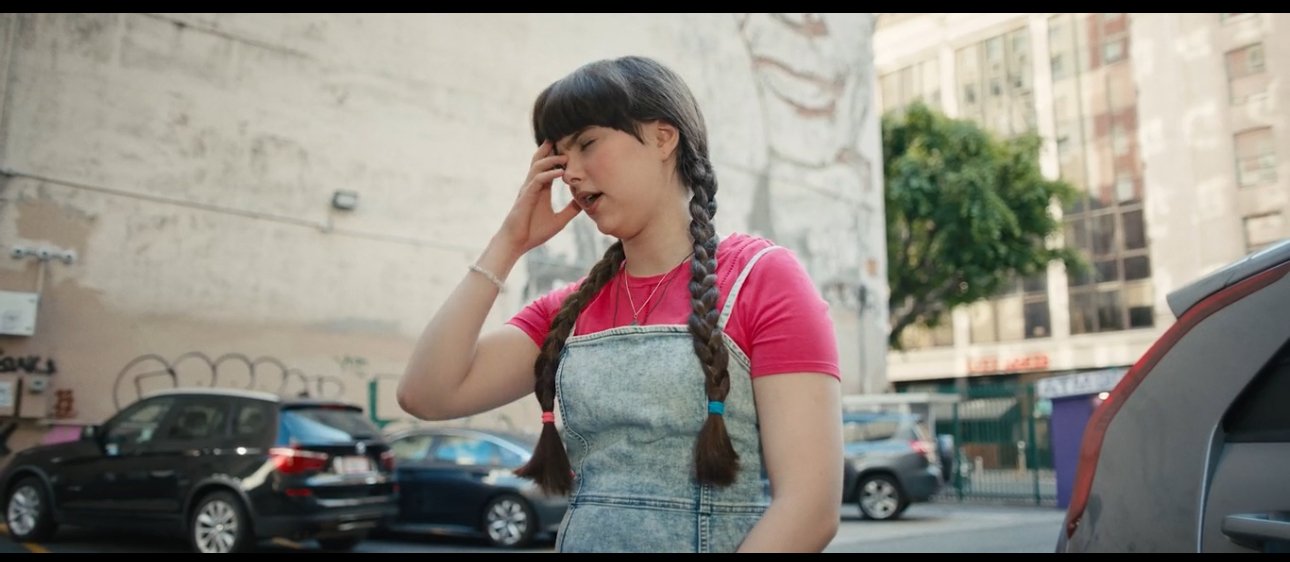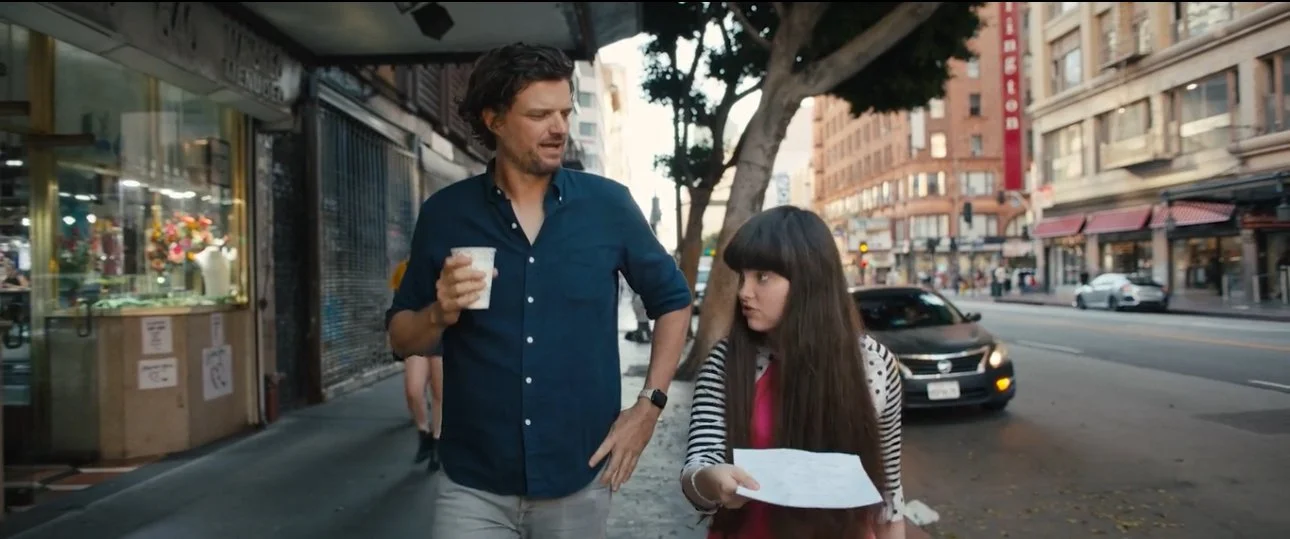Interview with Bella Zoe Martinez, Writer & Star of ‘Once More Like Rain Man’
Once More Like Rain Man follows autistic teenager Zoe on a tumultuous day of auditions: “autistic daughter of the love interest” “autistic sister of the love interest” “autistic niece of the love interest” “autistic cousin,” and so on. As these auditions occur, Zoe’s close relationship to her father undergoes stress due to a custody battle where disability benefits are on the line for her estranged mother.
The film, directed by Sue Ann Pien, is written by autistic actor Bella Zoe Martinez who also plays the title character. The title comes from the 1988 Best-Picture winning film Rain Man, a film where Dustin Hoffman plays an autistic savant. While providing representation for neurodivergent people, it cemented ongoing stereotypes of autism; the disorder is explicitly tied to savant syndrome in the film and Hoffman’s exaggerated physical and vocal mannerisms have been replicated in multiple performances of autistic characters by neurotypical actors.
At the start of the short, after a brilliant horror performance from Bella, Zoe is asked to do the scene “once more like rain man,” showing the demand for a performance that fits a niche stereotype. Autistic characters are also rarely played by autistic people, enforcing a narrow viewpoint of autism. Later in the film, Zoe and another autistic actress ruefully watch neurotypical actors attempt a “performance of autism” (including a preternatural ability to count any object perfectly, as if that were an autistic trait).
I had the pleasure of speaking to Bella Zoe Martinez about her experience in writing and starring in the film, the importance of autistic storytelling, and the importance of advocating for neurodivergent film workers.
Bella’s force for creativity immediately shone through: “I'm a very big ideas kind of gal, I love writing. My imagination is huge, even though if I close my eyes, I don't really see anything. But when I'm writing and just drawing, my imagination is just all out there.” She has two upcoming projects in the works: a feature film and an animated supernatural series. Bella describes her siblings as her “biggest cheerleaders.” Aspects of her siblings’ personalities also directly inspired Zoe’s characterizations, and the siblings animated the ending credits.
Speaking about the inspiration for the overall film, Bella tells stories from working as an actor. “Whenever I got scripts for normal characters, I had thoughts, dreams, complex motivations. . .Whenever I got a role for an autistic character for auditions, I was like, ‘Wait a minute.’ [The character] was flat, two dimensional. I basically had to rework the script from the ground up to just give it some depth.” In my favorite scene from Once More Like Rain Man, the creative team behind a television series ask Zoe her thoughts on the autistic character. Zoe, after a round of encouragement for honesty, describes her struggles with the character’s decision-making and reveals the dissonance between the writer’s understanding of autistic thought processes and actual autistic thought processes.
Throughout the audition process, the producers often ask embarrassing questions that demonstrate their lack of knowledge of autism. Bella empathetically assumes their questions are asked in earnest. She encourages questions from curious neurotypical people: “If nobody asks any questions, they're never going to know. They're never going to learn. Sure, the question can feel very, very stupid, but someone's gotta ask it. Otherwise, we're never gonna learn anything.”
Bella found the response to the film from the autistic community encouraging. “A lot of people really love how they see themselves in Zoe's character whenever they've seen the film, especially autistic folks in the community. It was like, ‘Oh, this is the first time I’ve seen myself, because I never saw myself in media as a little kid.’” In a media saturated with offensive stereotypes of autistic people (often suggesting an exaggerated autism superpower or only existing to provide pathos to a related character), Zoe provides a breath of fresh air for people who are usually restricted to the neurotypical lens. “I can be anybody, you know? Like, I don't need to be the daughter, the love interest, or ‘the whatever’ like that.”
40% of the people on the Once More Like Rain set were neurotypical. Protections were taken on-set to ensure their safety and comfort. The long-time workers were delighted in how much these protections, such as freedom to take breaks, improved their experience on the film. As Bella tells us, “I don't think I've ever seen any film sets quite like mine before. I think I accidentally broke Hollywood. But you know what? I think I'm going to continue doing that because that was fun. 100% it was. Accommodations for people that are neurodivergent would help the neurotypical people too; it should be the norm.”
At the end of the film, Zoe gives a brilliant and powerful monologue about the need for autistic representation. Immediately afterwards, the producers make an ignorant comment. In my interview, I remarked that the ending felt cynical. This reading surprised Bella, who feels the ignorance does not undermine the power preceding it. Reflecting on that scene and Zoe’s response, Bella says, “It's really up to you to make a future that has you in it. The world's going to go on, and if you don't make that future with you in it – something that you can build for yourself – it’s never going to happen. Dreams are only as big as you want to make them. And I think there's something wonderful about that.”


